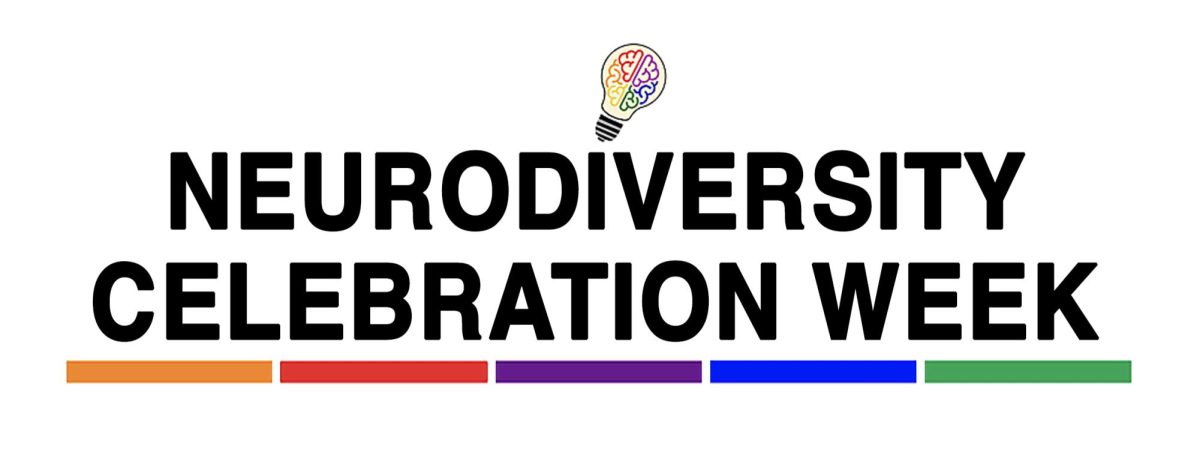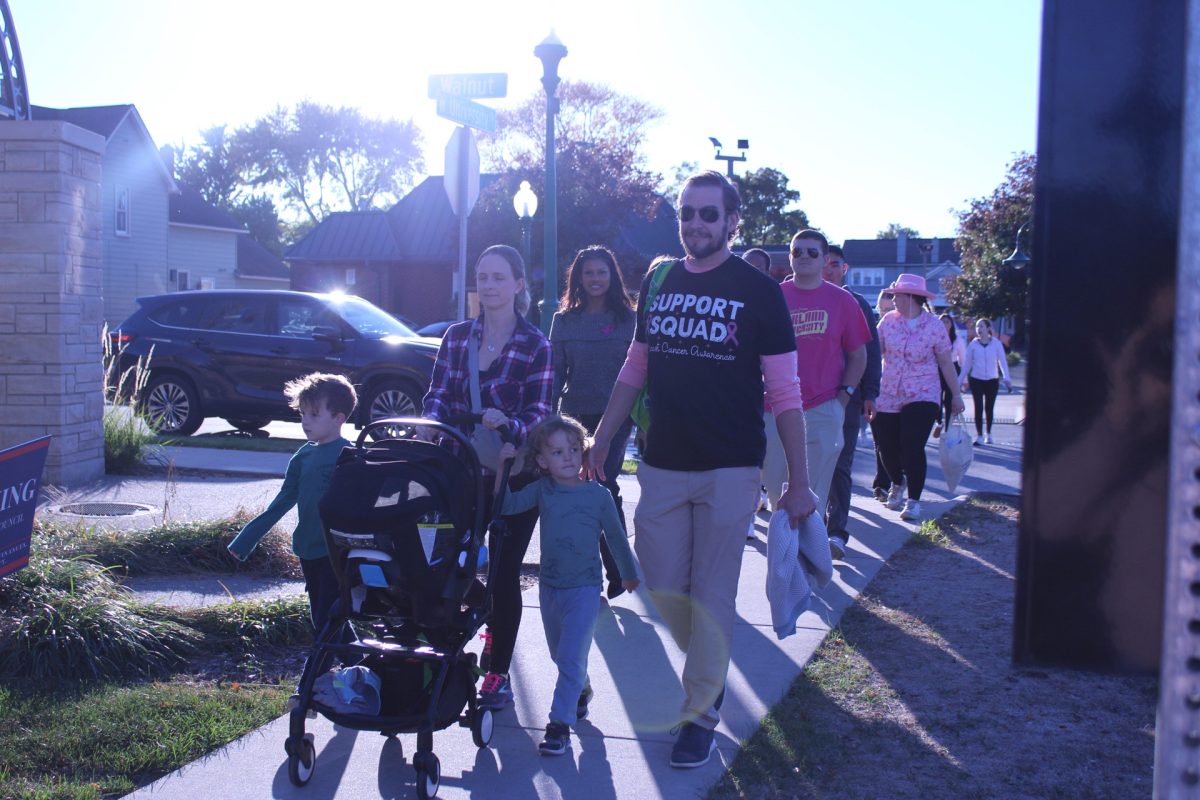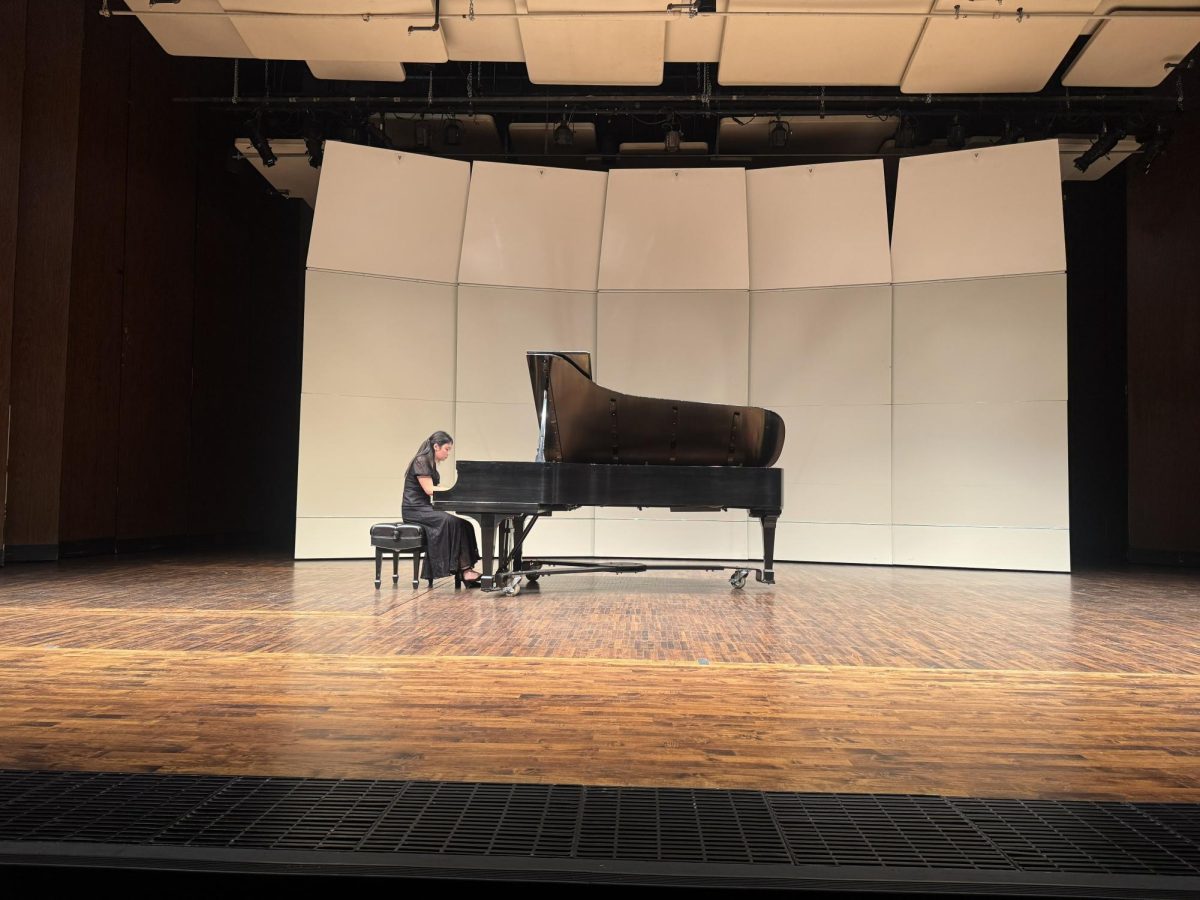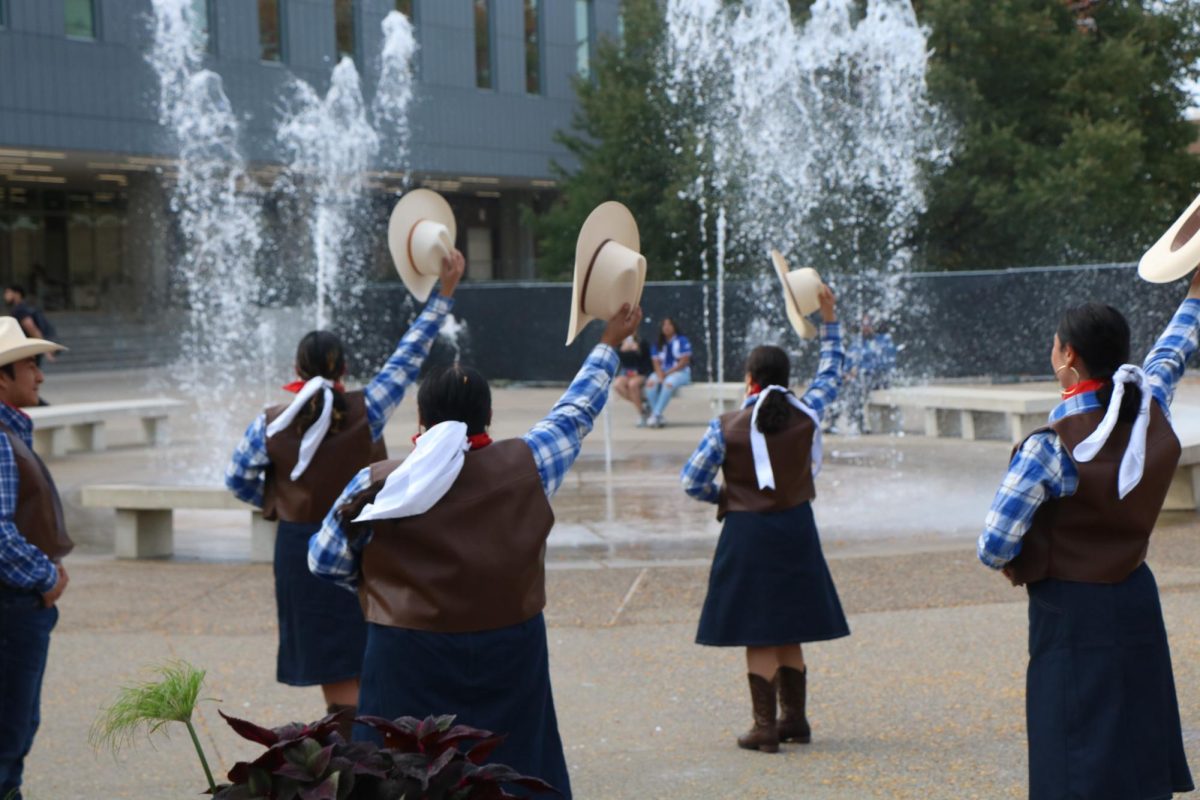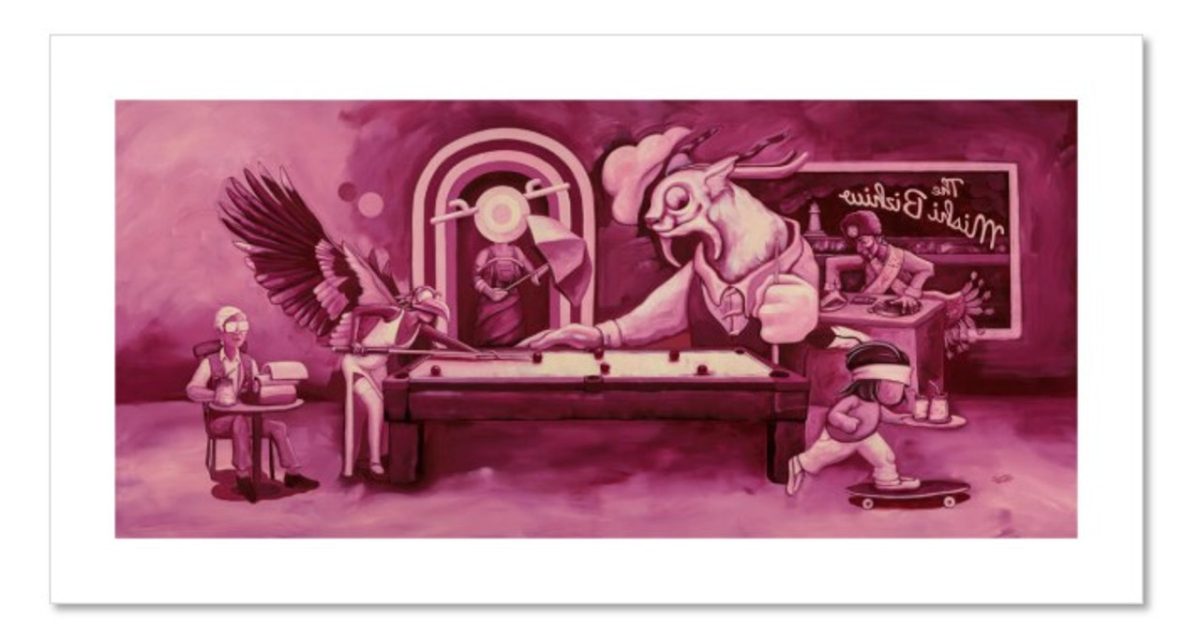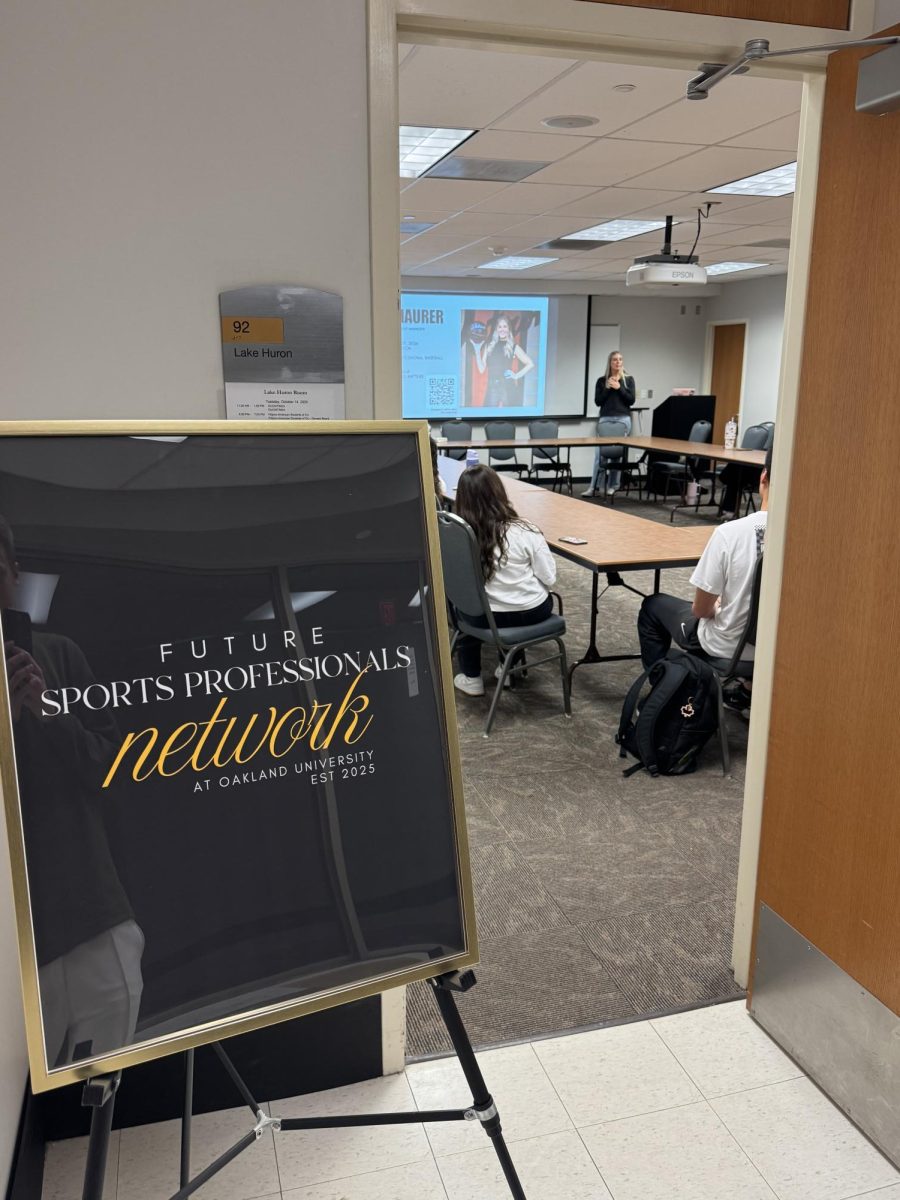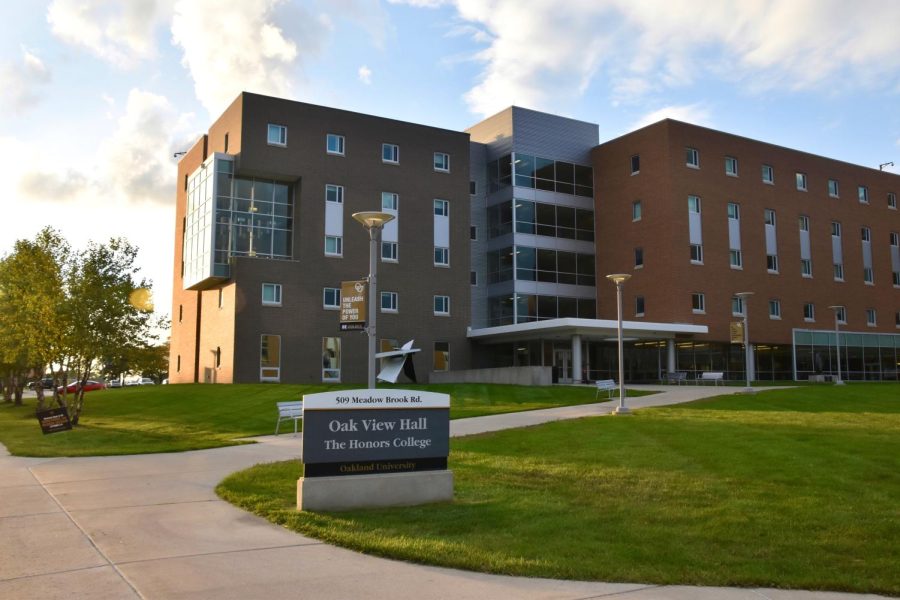Balancing soothing activities with brief info sessions, the Oakland University Student Congress (OUSC) hosted the Neurodiversity Celebration Week from March 25 to 29.
Trivia night, yoga and workshops were among the activities held at the Oakland Center (OC) to celebrate students’ journeys and advocacy for inclusion and education regarding neurodiversity.
OUSC kicked off the week on March 25 with Art Therapy Night at the OC before the informative presentations. Attendees painted small canvases and enjoyed sweet snacks with smooth jazz in the background.
March 26 was balanced with informative and recreational events such as Neurodiversity Trivia at the OC followed by Meditative Yoga at the Recreations and Athletics Center. The trivia allowed attendees to learn about terms unfamiliar to neurotypical people while meditative yoga offered a fun way to destress.
Kyle Griggs, Oakland University Counseling Center (OUCC) intern, explained the word “neurodivergent” is an umbrella term that encompasses autism spectrum disorder, attention deficit hyperactivity disorder, dyslexia and other cognitive conditions.
“If you have ever heard of a bell curve or bell graph, it typically reflects the idea of the average or majority of the population,” Griggs said. “A neurodivergent person is a person whose brain functions differently from the typical — someone in the outskirts of the graph.”
March 27 turned over to informative events such as the Org Expo: Resources for Neurodiverse Students event. Among other organizations, the Disability Support Services (DSS) office can help students get classroom and testing accommodations while the OUCC offers a variety of support groups for navigating college life.
Following the expo, the DSS hosted an Accommodations Workshop where they explained how their office operated and what accommodations could help students navigate classes.
“Nationally, 10% of college students are eligible for disability accommodations,” Christie Gough, DSS Coordinator, said. “Our population [at OU] is smaller than that percentage. We have anywhere from 600 to 800 students registered at the DSS.”
Some accommodations the office provides include note-taking software, powered wheelchairs, accessible rooms and dietary plans. Testing accommodations such as extra time, a scribe, or adaptive equipment on computers are also available at the undergraduate level and, in a case-by-case manner, for the Law School Admissions Test, Graduate Management Admission Test and Graduate Record Examinations.
A similar Neurodiversity Workshop was held on March 28 by the OUCC. Mostly focused on autism spectrum disorder, the event defined terms like stimming and masking while offering strategies to cope with burnout and shutdown.
“We need to shift the narrative — it’s not that we don’t have to talk about this stuff, because this is important, but we need to talk about the other stuff too, the positives,” Dr. David Schwartz, OUCC Director, said.
The screening of “Finding Dory” was a celebration of neurodivergence and a return to relaxing events to finish the week without stress.
Before noon on March 29, the week-long celebration ended with Neurodiversity Resources Tabling at the OC to maintain the efforts in support of neurodivergent students on campus and foster inclusivity.
“Last year, it was autism acceptance week, and we wanted to rebrand it to make it a little bit more broad to include more people,” Jimena Garcia, OUSC Director of Internal Affairs, said.
“The main point was just to have little relaxing spaces but also to have a little bit of educational parts to it.”



